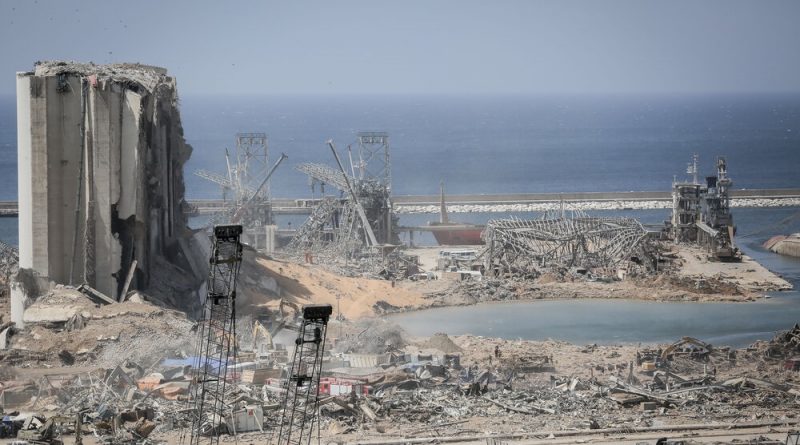Fire Breaks Out Once Again as Lebanon Deals with the Aftermath of the Beirut Explosions
Juliet J. Nangini
Staff Writer
After the one-month anniversary of the August 4 Beirut explosions that took place in the port of Lebanon’s capital, dark skies blanketed the city once again with two new fires that erupted within the past week. The former erupted on Tuesday, September 8 and the latter blazed through the port just two days after. The fire has since been contained and no new injuries have been reported. According to NPR, the Lebanese army declared that the latter blaze occurred in a warehouse that housed oils and tires in the port’s duty-free area.
BCC Logistics, a global freight, rented a storage facility where last Thursday’s fire took place. They were undergoing reconstruction work at the time of the fire, but their fire equipment was destroyed in last month’s blast. One of the major implications of the recent fires is its disruption to the humanitarian efforts in the area. In a report from Al Jazeera, Fabrizio Carboni, regional coordinator of the Near and Middle East at the International Committee for the Red Cross, states that the warehouse that caught fire contained a large quantity of oil and food parcels. In addition to the many buildings that were damaged during the initial explosion- which included Beirut’s airport, the German and Norwegian embassies, and nearby hospitals- the health of the Lebanese children is also greatly compromised. Jennifer Moorehead, the Lebanon director of Save the Children, mentions in an NPR article, “children in Beirut have experienced a terrible shock, and they need time to recover; today’s fire and panic will only make things worse.”
While people gathered near the site of the August 4 explosion to light candles and observe a moment of silence, soldiers laid down a white rose for each of the victims and rescuers who continued to dig through the rubble in hopes of finding a survivor. The detection of a pulsing signal prompted the operation as audio equipment initially detected 18-19 beats per minute. The Chilean search and rescue team, TOPOS, conducted the search in the Mar Mikhail district—a once lively and populated area. It commenced Thursday with Flash, a five-year-old dog, known on social media for his protective red shoes. Many people are grateful for the dog’s effort and think “it cared about the Lebanese people more than their own government,” AP says. Despite efforts, after three days of digging, the rescue team found no survivors.
The original blast that took place last month, caused by 3,000 tons of improperly stored ammonium nitrate, had been felt for over 100 miles away to the island of Cyprus and killed 191 people while wounding around 6,000 people. Ammonium nitrate, though by itself does not explode, is a chemical compound that fuels by dispensing oxygen. However, storing it with organic materials can be risky, especially with the presence of heat. The first explosion ignited a fire, which triggered a stronger second blast. An investigation by The New York Times interviewing numerous port and security officials revealed: “a corrupt and dysfunctional system failed to respond to the threat while enriching the country’s political leaders through bribery and smuggling.”
The country, already under major economic and political duress, has fallen deeper into instability—all while dealing with the pandemic. Food shortage continues to be a prominent issue as a silo containing 85 percent of Lebanon’s grains was destroyed in the original explosion, in addition to the destruction of the harbor, which causes further implications as the country imports 80 percent of its food consumption. A report from Business Insider indicates the blast left almost 300,000 people homeless with nearly half of the country’s population living under the poverty line and one-third of the country jobless. The public blames corruption and lack of care from the country’s officials and politicians, many of whom had been aware of the storage of the dangerous chemicals yet failed to act. The Lebanese people have been protesting since last October when inflation rose.
Despite the country’s domestic issues, many countries provided vital assistance: France sent in medical aid and President Emmanuel Macron visited the country, Germany sent rescue teams, the United States pledged money in aid, Russia delivered five planes containing medical aid, personnel, and coronavirus testing, while Qatar, Jordan, and Iran also sent medical aid, and Israel provided assistance, says The Washington Post. In these trying times, the Lebanese people have come together to fight for political change in hopes of a better future.



